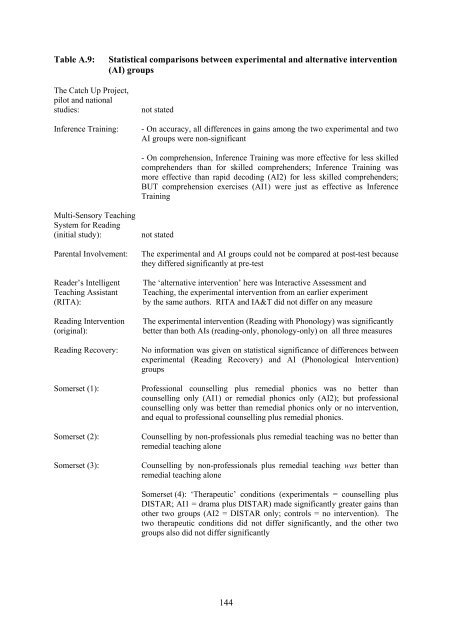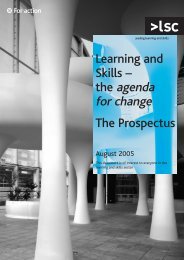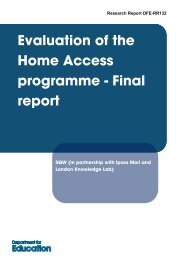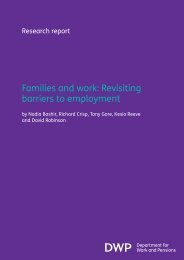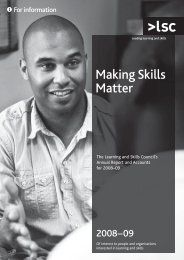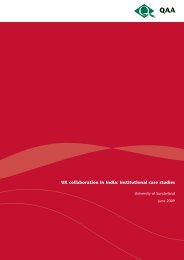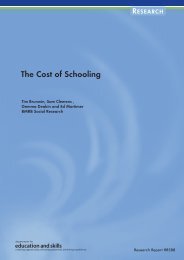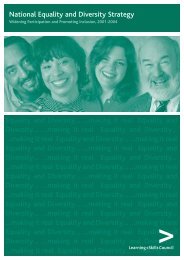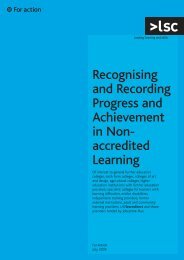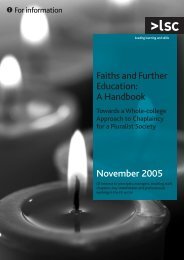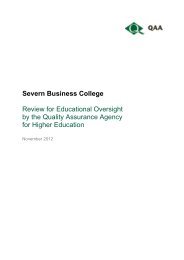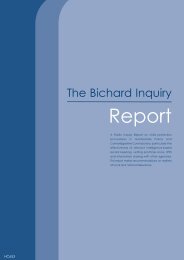What Works for Children with Literacy Difficulties? - Digital ...
What Works for Children with Literacy Difficulties? - Digital ...
What Works for Children with Literacy Difficulties? - Digital ...
Create successful ePaper yourself
Turn your PDF publications into a flip-book with our unique Google optimized e-Paper software.
Table A.9: Statistical comparisons between experimental and alternative intervention<br />
(AI) groups<br />
The Catch Up Project,<br />
pilot and national<br />
studies: not stated<br />
Inference Training: - On accuracy, all differences in gains among the two experimental and two<br />
AI groups were non-significant<br />
Multi-Sensory Teaching<br />
System <strong>for</strong> Reading<br />
(initial study): not stated<br />
- On comprehension, Inference Training was more effective <strong>for</strong> less skilled<br />
comprehenders than <strong>for</strong> skilled comprehenders; Inference Training was<br />
more effective than rapid decoding (AI2) <strong>for</strong> less skilled comprehenders;<br />
BUT comprehension exercises (AI1) were just as effective as Inference<br />
Training<br />
Parental Involvement: The experimental and AI groups could not be compared at post-test because<br />
they differed significantly at pre-test<br />
Reader’s Intelligent The ‘alternative intervention’ here was Interactive Assessment and<br />
Teaching Assistant Teaching, the experimental intervention from an earlier experiment<br />
(RITA): by the same authors. RITA and IA&T did not differ on any measure<br />
Reading Intervention The experimental intervention (Reading <strong>with</strong> Phonology) was significantly<br />
(original): better than both AIs (reading-only, phonology-only) on all three measures<br />
Reading Recovery: No in<strong>for</strong>mation was given on statistical significance of differences between<br />
experimental (Reading Recovery) and AI (Phonological Intervention)<br />
groups<br />
Somerset (1): Professional counselling plus remedial phonics was no better than<br />
counselling only (AI1) or remedial phonics only (AI2); but professional<br />
counselling only was better than remedial phonics only or no intervention,<br />
and equal to professional counselling plus remedial phonics.<br />
Somerset (2): Counselling by non-professionals plus remedial teaching was no better than<br />
remedial teaching alone<br />
Somerset (3): Counselling by non-professionals plus remedial teaching was better than<br />
remedial teaching alone<br />
Somerset (4): ‘Therapeutic’ conditions (experimentals = counselling plus<br />
DISTAR; AI1 = drama plus DISTAR) made significantly greater gains than<br />
other two groups (AI2 = DISTAR only; controls = no intervention). The<br />
two therapeutic conditions did not differ significantly, and the other two<br />
groups also did not differ significantly<br />
144


